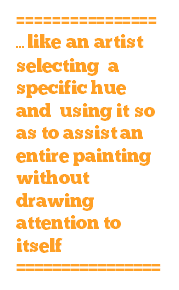George Martin, 1965
Yesterday’s string quartet and the ambitious, skewed arrangement of I am the Walrus might be held up as among the pinnacles of George Martin’s contributions to The Beatles’ sound.
But I think it’s in the smallest of his additions that his presence is perhaps most keenly felt, the way he introduces a particular instrument at a particular point for a particular purpose.
Immaculate precision
The half-speed piano of In My Life and For No One’s French horn solo are good examples. Each shows imagination, economy and immaculate precision, a combination which is characteristically his, applied with the same skill as an artist might select a specific hue and use it just so, subtly at this point, so as to assist the entire painting but without drawing attention to itself. Both clavichord-like piano and French horn arrive, say what they have to say and leave. Both show deference, a quality in short supply in pop and rock.
George’s contributions are as integral to both songs as the voices of Lennon and McCartney themselves, his instrumental solos so ideally realised as to be the placement of another voice. The solos very much stand alone – it’s not hard to imagine piano and French horn silenced for the duration – yet the songs are incomprehensible without them.
Discreet flamboyance
Often George Martin’s inspirations were classical, unsurprising given his background. Whilst he added a ‘trained’ element, his ideas were not overly refined. That he was able to introduce classical elements without them seeming at all grafted or imposed is testament to his great skill. Of course he was fortunate to have as  his framework the consummate songwriting of Lennon-McCartney. Martin’s choices are surprising, daring even but are always (just like Ringo’s drumming) in service of the song.
his framework the consummate songwriting of Lennon-McCartney. Martin’s choices are surprising, daring even but are always (just like Ringo’s drumming) in service of the song.
Yet both the examples I mentioned above work against the overall tenor of the songs; the discreetly flamboyant clavichord of In My Life is almost jaunty* amidst such ‘sighing introspection’ (as Iain MacDonald so perfectly puts it) whilst For No One’s French horn seems removed from the unfolding chamber tragedy.
This is also what makes George Martin’s contributions so great, not merely their understated elegance but their refusal to add an overt emotionalism which would have been out of keeping with the anti-romanticism of The Beatles. He steadfastly avoided both the obvious and the lush (Something comes closest but remains adept, apt and justified).
Is Sir George’s influence still heard in music today? I leave that for others to comment upon.
*though it does, to my ears, suggest a kind of rapid flick through life’s back pages or an old film reel spinning by in under twenty seconds.
Sir George Martin: 3rd January 1926 – 8th March 2016.
